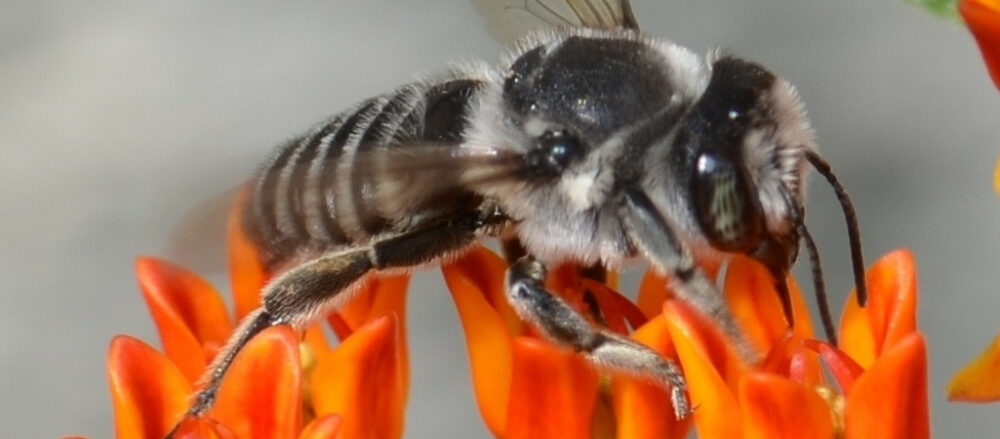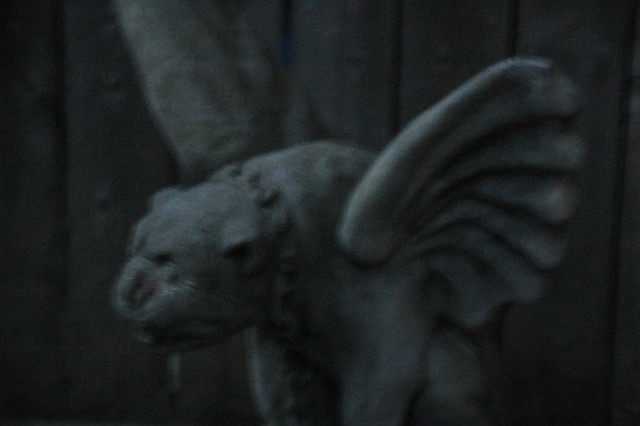Update 2008.01.23: Added brief history of the Pink Panthers and bibliography of articles from the New York Times.
The jacket I wore while on patrol with the Pink Panthers in 1990 and 1991
My friend, David Joseph Wilcox, died 12 years ago, on January 22, 1996. He was 38 years old.
I’m actually writing this late at night, early in the morning of January 23. I can’t sleep. I’ve post-dated this to January 22, Dave’s mortiversary. We’ll see if Blogger accepts it. [It did.]
Earlier this evening, I listened to a recording my partner, Blog Widow John, and I made, interviewing each other about our remembrances of Dave. Two years ago, on the 10th anniversary of his death, we went to the StoryCorps booth at the World Trade Center site – Ground Zero – in downtown Manhattan. In particular, we spoke about how Dave’s death brought us closer together.
Dave moved in with John for the last year of his life. For many reason, it was a trying time for John, even apart from Dave’s illness. When Dave died, John reached out to me, as someone who knew both of them for many years, for support. Though we had already known each other for over a decade, that was the beginning of greater intimacy between us than we had ever shared. Our relationship today arose, phoenix-like, out of our shared loss.
When I can figure out how to edit down the full 45 minutes we recorded into more manageable tracks and cohesive segments, I’ll be able to make them available. What follows is the full text of the eulogy I wrote and read at one of Dave’s memorial services. I have a VHS videotape of that which could be transcribed to digital video, but I can hardly be understood in it. I could barely speak.
In Memoriam: David Joseph Wilcox
b. 15 November 1957, d. 22 January 1996
1. Prologue
I’ll start with a letter.
There remained to me at least something salvaged from the wreck of last year: a most brilliant man, and … one great in action and counsel … who after numerous proofs of his virtue became very dear to me, and seemed worthy of your friendship as well as mine. … [displaying] loyalty and good fellowship, and that friendship which lies in sharing good and bad fortune and baring the hidden places of the heart in a trusting exchange of secrets. How much he loved you, how much he longed to see you – you whom he could see only with the eyes of imagination. How much he worried about your safety during this shipwreck of the world. I was amazed that a man unknown to him could be so much loved. … And this man (I speak it with many tears, and would speak it with more but my eyes are drained by previous misfortunes and I should save some tears for whatever may befall in the future), this man, I say, was suddenly seized by the pestilence which is now ravaging the world. This was at dusk, after dinner with his friends, and the evening hours that remained he spent talking with us, reminiscing about our friendship and shared concerns. He passed the night in extreme pain, which he endured with an undaunted spirit, and then died suddenly the next morning. None of the now-familiar horrors were abated …
Go, mortals, sweat, pant, toil, range the lands and seas to pile up riches you cannot keep; glory that will not last. The life we lead is a sleep; whatever we do, dreams. Only death breaks the sleep and wakes us from dreaming. I wish I could have woken before this.
– Written by Francesco Petrarch to Louis Heyligen, in May 1349, during the Black Death in Europe.
2. Gay Cancer
I moved to New York, to the East Village, in the winter of 1979. When I met Dave a few years later, maybe 12 years ago [at the time of this writing in 1996], he was a vulture. Actually, I saw him dressed as a vulture in some incomprehensible show at La Mama. I knew the stage manager, and I met Dave after the show at the closing party. First impressions: short, wiry, blue eyes, intelligent. I was in love. But we became friends anyway.
When I moved to New York, I moved into the middle, into the beginning, of an epidemic that would become a pandemic, though I didn’t know it. Nobody knew it. First, it was “gay cancer.” Then it was GRID – Gay-Related Immunodeficiency Disease. Several hundred deaths later, late summer 1982, it became AIDS. Seventeen years of now-familiar horrors, of struggling to reconcile my denial, panic, rage, guilt, helplessness and despair.
September 1991:
I cry, yet I’ve not suffered enough.
Who suffers more, the dying or the living?
I grieve, yet I am not angry enough.
I am too weak, too self-absorbed, too numb.
I am cruel enough to avoid an ex-lover on his deathbed,
yet angered by the deliberate avoidance of another.
I choose ignorance before responsibility,
running from the chance of knowing,
and feeling.It doesn’t stop.
It doesn’t wait for me to catch up,
to get my life in order,
that I might face loss with strength and conviction.
So far surviving the holocaust of my peers,
I make nothing of my life that would honor their passing.And it continues … it goes on, and on …
After all that has happened,
it is only the beginning,
always just the beginning,
ever new horrors stand in front of me,
invisibly in the future,
that I might stumble across them.Still I can ask: why?
3. Scapegoats
Dave and I developed a friendship whose continuity endured despite long absences. We’d not see each other or speak for months, or years. Then he’d call me with a new phone number, or we’d bump into each other at a bar, and pick up where we left off. And that’s what I was looking forward to when, after another long absence, I called him this past December, to see if he’d received my invitation to a holiday party. He said it was good that I called. “I’ve been telling myself, I really should call Chris …” Three months ago, I hadn’t known he’d been sick. I didn’t know he was dying.
One of the ways I’ve responded to AIDS is to read: about viruses, the natural history of disease, historical plagues and epidemics, their human impact … During the Black Death of the 14th century, Christians accused Jews of poisoning wells and rivers. Some Jews “confessed” under torture, or were baptized. The others were tortured, killed, and burned, in fields and open pits, in their synagogues and homes, or in buildings constructed for this special purpose.
While AIDS has its own scapegoats, with so-called leaders of all religions denouncing them, little has changed in 650 years. There is no god who has delivered AIDS to “punish” me, my friends, my lovers, my family of choice, my community. Sex is not a sin, my love is not a disorder. There are no “innocent victims.”
April 1992:
how many voices have you silenced?
whose truth do you fear?what sends you running for shelter in your god’s shadow,
clinging to the hem of his rotten shrouds,
praying to him for the bad words to stop?your ignorance is vile
dangerous
violentyou would see me struck down
silence my voice, my truth
to preserve your fragile ballast of liespreaching vainly of greater good
you bring greater harmthere isn’t room enough in hell for both of us
you go first
4. Grace
I believe that Dave came to find some faith, or re-discover his faith, in the community of the church where he worked. I want to honor that, but I admit I don’t understand it, and the only comfort it gives me is that Dave’s belief helped him. I don’t believe in a god, or a heaven, or any life after this one. This is it. Dave’s death is final. I’ll never see him again.
October 1994:
grace
I’m not a holy man.
there are no gods.
the dead speak to us
only through their works.sadness weighs her heavy lids.
though portrayed as another,
she is of this world.
shaped by your hands,
her lifeless face holds your grief.loss beyond comprehension.
time only to bury, or burn –
the next wave overtakes you.from your hunger to understand,
you carve icons of your faith.
out of numbing pain,
you create meaning where there is none.is it such mystery,
that you would know how I felt?
[Note: “She” is a wooden statue I saw at the Cloisters in upper Manhattan. When I wrote the poem, I thought the statue was contemporaneous with the Black Death. In fact, the statue was from the 12th Century, at least 150 years earlier, a dark enough time on its own.]
5. Panthers
The summer of 1990, a series of violent attacks against lesbians and gay men galvanized the community. The Pink Panthers, a street patrol, formed in response. Dave and I were among the founders of the East Village branch of the Panthers. For me, this was the most intimate and satisfying period of our friendship. We strategized, organized, leafleted, trained and patrolled together. Although we joked about having big pink targets on our chests, we knew that when we were on the streets, we placed ourselves in danger. Of all my colleagues and comrades from the Panthers, I felt safest with Dave as my patrol buddy, side-by-side. I trusted him with my life.
No explanation can ever satisfy me. Dave’s death is senseless. His life has meaning. I miss him.
July 1993, after learning about the death of another friend, also named David [David Kirschenbaum]:
what would it mean
even to say goodbye
my words do not grant
another breathsearching for the grief
that must be felt
as I recall other men
other namesif I could let go
lose control
permit my tears
what would it changeit ends, it is final
no room for regrets
no hopes for another chance
it is overhelpless, in the face of death
living is the best revenge
Fight the fascists.
Celebrate life.
Never give up.
Notes on the Pink Panthers
The Pink Panthers operated from 1990 to 1991. After it was successfully sued by MGM for use of the name “Pink Panther”, the group changed its name to OutWatch, but by the end of 1991, the group was already fading. After 1991, it existed largely in name only and its assets were dissolved several years later.
A series of articles in the New York Times summarizes this history:
Streets of Sanctuary Now Harbor Criminals, August 6, 1990
Anti-Gay Attacks Increase And Some Fight Back, September 3, 1990
Gay Organization Sees Upsurge in Violence, October 19, 1990
Pink Panthers Sued by MGM, January 8, 1991
Gay Patrol And MGM In a Battle Over Name, May 27, 1991
Gay Group Can’t Call Itself Pink Panthers, October 5, 1991
Links
StoryCorps
David Kirschenbaum’s obituary in the New York Times, July 14, 1993. He was 30 years old.

